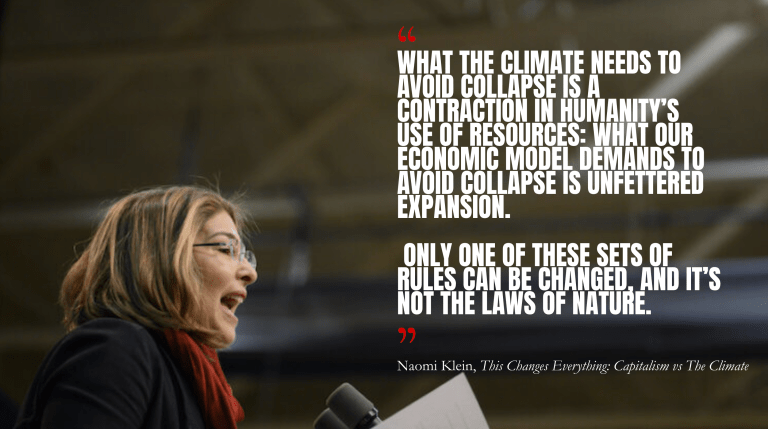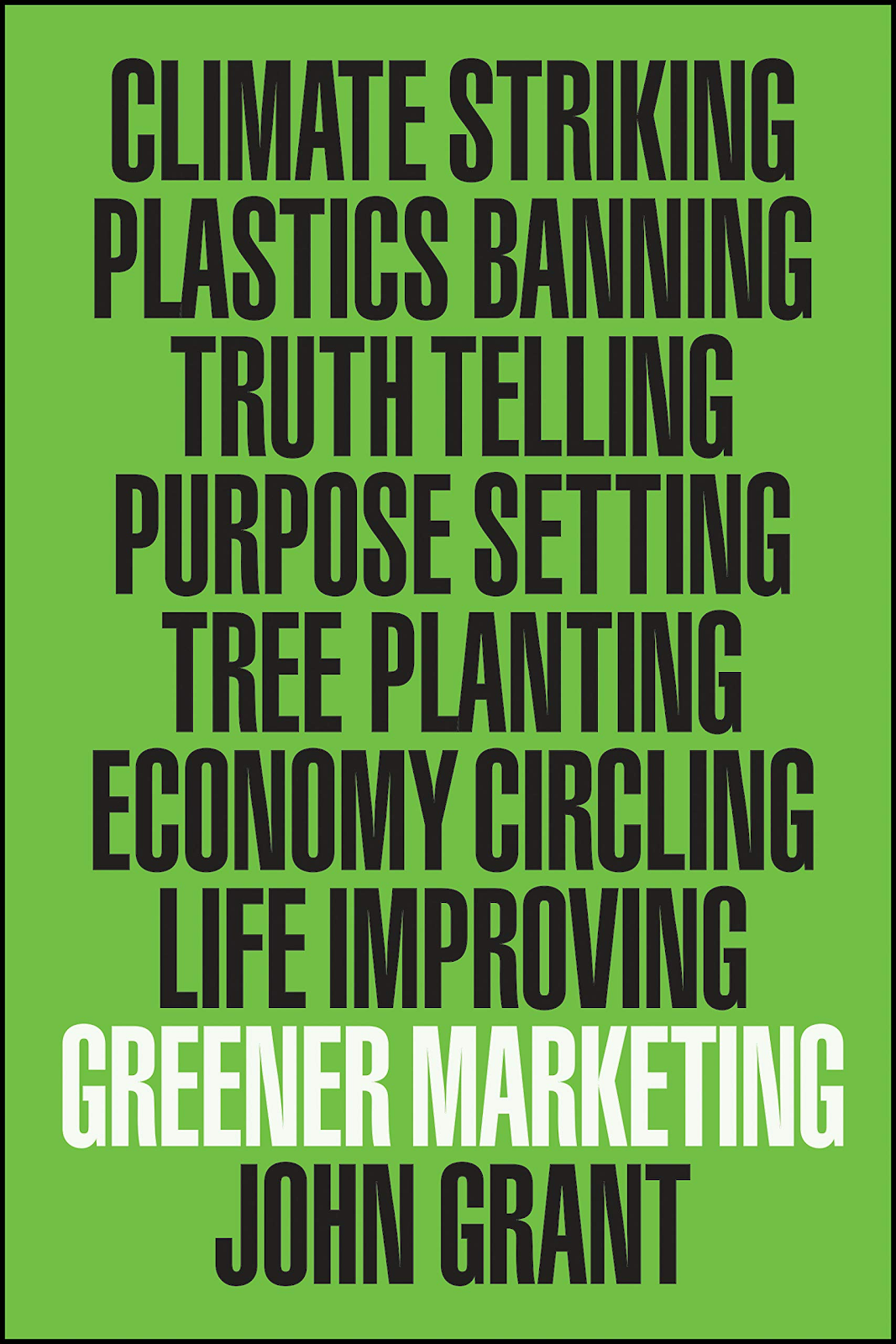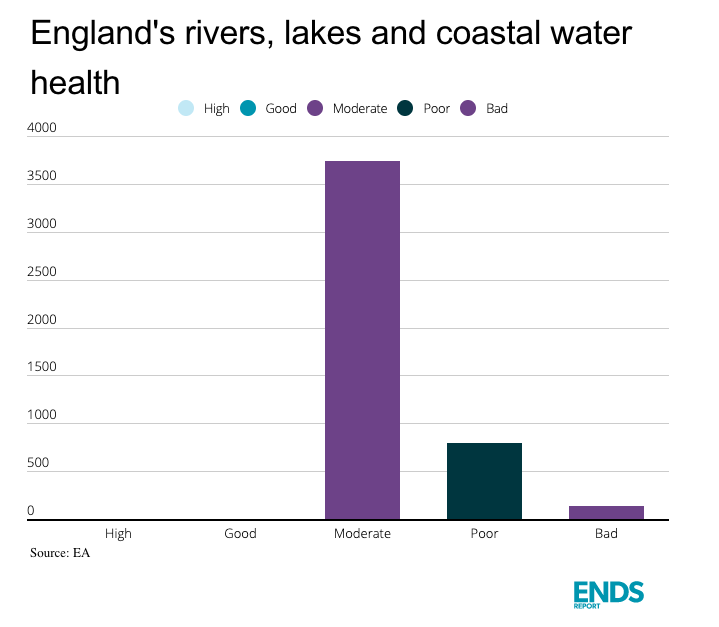
YOU’RE GONNA HAVE TO GET NAKED TO SAVE THE WORLD
Papillon Bond
09/10/2020
If humanity is to survive the climate crisis, brands need to be brave enough to bare it all. Forget promises to improve by 2050 – the time for greener marketing is right-fucking-now, argues Papillon Bond, Cultural Researcher at BBH London.
Marketing’s irrefutable role in unfettered expansion does not mean those of us in the industry should be cynical. Quite the contrary. The strategic and creative processes we have employed to drive consumption can be applied to do good for the planet. But not just greenwashing good, like actual, at its core good.
Because that’s what people want; real, tangible change.
In June, it was revealed that the Climate Assembly supports a green recovery from Coronavirus, and that they don’t want environmental concerns to be disregarded in favour of the economy or to return to life as it was before coronavirus.
Profit for businesses can no longer be solely the delivery of financial performance. Profit must also be calculated as the positive contribution a business makes to people and the planet.
So if it is new brand values that consumers want, what’s the role of marketers?
In John Grant’s most recent book, ‘Greener Marketing’, he explains that being a sustainable brand is not enough. Take Aveda; they’ve been making plant-based hair products since the 70’s, were the first to use 100% recycled plastic packaging and 90% of their ingredients are organic. And yet to younger consumers who prioritise sustainability in their buying choices, Aveda is irrelevant. Why? Their lack of presence on social media. How and where you communicate still matters.
If we want to understand what a fresher, greener approach to marketing looks like, we need only look at:
Hear Me Raw Beauty. From recyclable refill pods, to vegan, cruelty-free, natural ingredients, the environment has been woven into the tapestry of the brand. Reusing packaging is incentivised by breaking down the financial savings you make as a consumer. The brand is also vocal on other issues such as using its platform to encourage people to vote. Being consistent across the board by actively engaging consumers to make conscious choices, in and outside the brand (whilst also nailing the instagram aesthetic) keeps them relevant and real.
Let’s take a look at the strategies no longer working:
Greenwashing - Fluffy eco language, a flower logo and making a ‘sustainable’ product in a polluting factory aren’t cutting it. Don’t green wash and cry wolf. Actually be green and implement practices that minimise environmental impact.
Carrot dangling - promises of ‘we aim in the next such and such years’ won’t do you any favours. Consumers want change now. Did you watch Attenborough’s ‘Extinction: The Facts’? We’ve got 7 years to reverse damage. We don’t have time!
Broken promises - Oatly. Need I say more?
Lack of transparency- You can’t claim to be sustainable, only to find other parts of the company contradicting it. Take H&M. Their ‘conscious collection’ was under fire as garments were described as ‘100% sustainable’ without any clarification of what that meant. Mushroom leather grown from the ashes of deforested woodlands, stitched together by electrically charged fairies? Plus, social media is now its own form of investigative journalism. Combined with block chain technology, we now have very empowered consumers who do their research and strive to know all the facts, not just the ones brands want people to know. So you’re gonna have to get naked and bare all if you want any sort of respect.
On that note - hats off to Iceland for publishing its own ‘plastic footprint’.
The fact of the matter is, consumers are willing to do the work. According to IBM research insights (2020):
57% of consumers are prepared to change their purchasing habits to help reduce negative environmental impact.
72% of consumers would pay a premium for brands that are environmentally responsible and support recycling.
70% of people have or would like to try circular economy practices such as purchasing pre-owned, repaired or renewed products.
They’re not only willing, but they are in fact doing a lot of the leg work:
Hotwire found that 47% of internet users worldwide stopped buying products and services from a brand that violated personal values, with protecting the environment being number one on that list.
NYU Stern’s Center for Sustainable Business discovered that products marked as sustainable grew 5.6 times faster between 2013-2018 than those that were not.
And so as marketers, we need to honour that consumers are willing to contribute to the cause. And the best way we can do this, is by delivering on green objectives.
We do that by -
Being open. Marketing is an opportunity to be transparent.
Being purposeful. Practicing environmentalism with determination and rigour.
Being thoughtful. It’s about long term solutions not short-term initiatives. Knee jerk reactions and quick fixes will be more harmful in the long run.
Why now?
Coronavirus did us no favours. Sure, we all cooed at the viral videos of animals roaming bare city streets, and beamed at planeless skies. But on closer inspection, recycling programmes were suspended, sustainable waste management restricted, single-use packaging increased; the environmental consequences of the pandemic are greater and far longer lasting than the indirect positives we first hailed.
And we’d better get going.
On 9 February, the highest temperature ever on Antarctica was recorded; 20.75 degrees celsius.
On 30th April, a study revealed that microplastics were found in greater quantities than ever before on the earth’s seabed.
On 17th September headlines were made as all English rivers failed to meet quality tests for pollution.
Greener Marketing is not something we should be aspiring to. A ‘we’re working towards by 20-whatever’. The time for not just Greener, but the Greenest Marketing is right-fucking-now.




